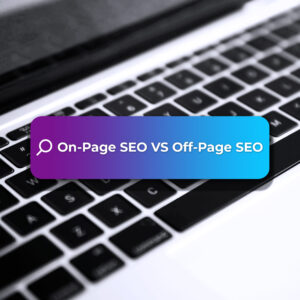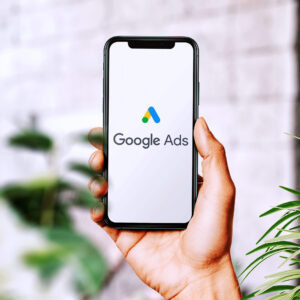Creating an effective PPC strategy can help your organization thrive by increasing sales and site traffic. On the flip side, approaching PPC campaigns the wrong way can result in a low return on investment (ROI) or even hurt your brand’s reputation.
It literally pays to make sure you approach PPC advertising the right way. Read on to discover 5 mistakes you may be making with your PPC ad campaigns and how to correct them to save time, money, and wasted effort.

Want to get better results from your pay-per-click campaigns? Here are some PPC mistakes that you might be making and how to correct them.
The headlines and descriptions that you create for any ad can make or break whether someone chooses to click on it. Create headlines that are eye-catching and descriptions that offer a clear explanation of what your audience can expect when they visit the page that your ad is linked to.
Getting someone to click on your ad is just the first step. The next step is to present them with a landing page that is relevant to what they are looking for. Even an ad with a high click-through rate won’t be of much use if the landing page drives people away because it contains poor-quality content and doesn’t support your ad or the searchers intent. Poor landing pages can have a negative impact on your campaigns, quality scores, and ultimately hurt your brand’s credibility.
It’s important to define your target audience prior to launching a PPC campaign or else your ads will be shown to people who don’t care about what you have to offer. The best way to define your target audience is to build a buyer persona. This will help you figure out potential characteristics and demographics of your target audience including age, interests, hobbies, and more. When you target the right audience, it shows searchers that you understand them on some level and can offer the help they need.
Keywords are the starting point for every PPC campaign, and a great list of words will not only improve performance but keep costs down. Choosing keywords can be tricky. Avoid these trip-ups when building your keyword list for your ads.
a. Poor Keyword Choices: Choosing the wrong keywords can undermine your campaign’s effectiveness because your ads can show up in front of an audience that doesn’t care. Case in point, there is a big difference between targeting a keyword like “healthy food” vs “healthy dog food.” Make sure your keywords are relevant to your audience and your business.
b. Only Using Broad Match Keywords. Broad match keywords let you reach the widest possible audience regardless of the searcher’s intent, so if someone enters a few of the words you are targeting, your ads will display for them. Use a combination of long-tail keywords and other match types, including exact and phrase match to find a balance between audience reach and keyword relevance.
c. Neglecting Negative Keywords. These are the terms that you don’t want your business to show up for. The negative keywords you use are meant to help prevent your ads from showing up for keywords unrelated to your business or offer. Not having a list of negative keywords can lead to wasted ad spend.
Conversion tracking is how you judge the overall effectiveness of your paid search campaign. It is important to track more than just how many clicks an ad gets. Setting up conversion tracking allows you to determine what gets customers to convert or not. Choose your campaign goals and set up your conversion tracking to keep tabs on when those goals are met. If the end goal isn’t accomplished, then an ad isn’t doing its job. Make sure to set up conversion tracking to be detailed and informative to give you ample opportunities for future improvements to your ads.
“My ad platform does everything automatically!” Have you said this? We understand that the automation inherent with a PPC platform may lure you into the idea of just plopping your campaign details in and letting things run. While this may feel convenient, it’s not a good idea to just put things on autopilot and then bounce. You set yourself up for success by checking the automatically recorded data on a regular basis and then adjusting and optimizing your ads to get the best ROI possible. Just leaving your ads to “run” without keeping tabs on them means they’ll eventually start to waste your budget and reduce your ROI.
If you’re looking to get more from your PPC campaigns, reach out to us today. We make it paid search campaigns easy and help you avoid common mistakes.









